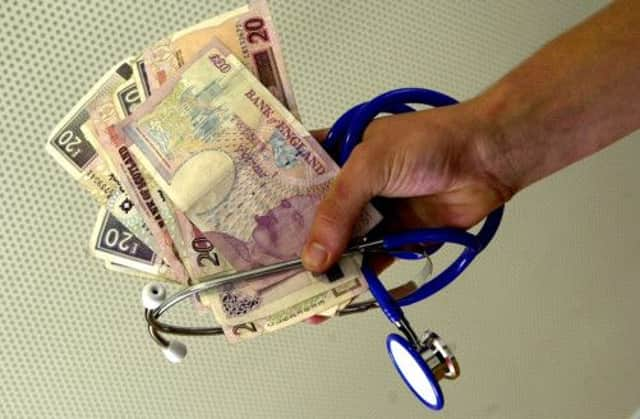Leaders: What are we willing to pay to save NHS?


Those best able to make a considered judgment on our health service are those who work at its sharp end. So it is disturbing to hear from the Royal College of Nursing (RCN) that they believe the NHS is close to breaking point. College officials report that half of all nurses are taking on overtime and are struggling to meet basic patient needs.
These latest NHS concerns come as a study reveals survival rates for some cancer patients in the UK are lagging behind those in other countries. Cancers of the colon, kidney and ovaries are particularly worrying, with survival rates significantly below those in many other parts of Europe.
Advertisement
Hide AdAdvertisement
Hide AdPressures on the NHS are only going to increase in the coming years and decades. People are living longer, but their extended old age is not necessarily spent in the best of health. In addition to this, our doctors are constantly finding new ways to treat us better, and help us live longer.
The question that arises from this is obvious and simple: how much will all this extra health care cost to provide, and who will foot the bill?
Obvious and simple it may be, but this question is not being asked by our policymakers, let alone answered. And yet it can no longer be ducked.
Of course, an increase in people signing up for private healthcare – either of their own volition or through the benefits provided by their employer – is capable of taking some of the strain off the NHS. Increasingly people want to fit their health care around their busy lives, and private providers have proved adept at offering diagnosis and treatment that is quick and convenient.
But not everyone can afford – or would chose to use – private health care. And when it comes to the most serious conditions, the private sector does not have the personnel, equipment or resources to compete with the mainstream NHS.
The inescapable fact is that tough choices are going to have to be made. Do we simply keep on paying for the NHS, regardless of the cost? What level of tax rises would we be prepared to vote for to support an NHS much bigger than it is today?
And if we are not willing to pay a great deal more, do we ration health care in some form? If so, what do we sacrifice?
This area of discussion is fraught with political difficulty. The NHS is regarded as almost one of Britain’s crown jewels. At election time, every political party’s first job seems to be to demonstrate “the NHS is safe in our hands”.
Advertisement
Hide AdAdvertisement
Hide AdBut these questions require an open and honest debate, and some answers.
Spectre of a neverendum
WAS Nicola Sturgeon wise yesterday to speculate that if independence is rejected in next year’s referendum, there could be a re-match in 15 years’ time?
People from different parts of the political spectrum may be unhappy about this for different reasons. Diehard unionists may say 15 years is too soon, and certainly not the “generation” Alex Salmond mentioned when asked about this last year. For these people, Ms Sturgeon’s comments raise the spectre of a “never-endum”.
Enthusiasts for independence, on the other hands, may be dismayed to learn that the cause for which they fight could be parked for a decade and half if they do not seize the prize next September.
Ms Sturgeon may have been ill-advised to come out with such a definitive position on this issue. Because surely it depends on how close the result will be.
If there is a resounding defeat of the independence proposition, then it makes sense for it to be put respectfully aside for the foreseeable future. In such circumstances, an SNP that fought the next Holyrood election on a manifesto commitment to hold another independence vote would surely be punished at the ballot box.
If, on the other hand, a No victory is a narrow one, then a proposition backed by almost half the population is not going to just disappear from the political agenda. The likelihood is that it will remain an issue as long as there is strong public backing for it.
For those already experiencing referendum fatigue, the very thought may be a wearying one. But the politics of independence may be with us for some time yet.